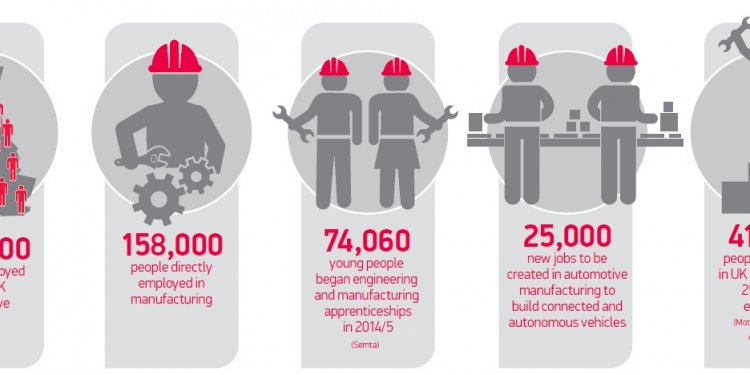
Automotive industry Facts

MYTH: Unionization Caused The Detroit Auto Industry Collapse
Fox's Tantaros: The UAW "Really Bankrupted" Detroit Car Industry. From the February 18 version of Fox News' America's Newsroom, co-host Bill Hemmer and fellow Fox News number Andrea Tantaros utilized an unsuccessful unionization vote at a Volkswagen plant in Chattanooga, Tennessee to strike the United vehicle Workers (UAW), with Tantaros saying the union "essentially bankrupted a lot of organizations in Detroit." [Fox News, The United States's Newsroom, ]
Fox's Morris: UAW Failed Because "We All Know What Happened In Detroit." On the February 16 version of Fox News' Fox & Friends Sunday, co-host Clayton Morris invited Sean Moss, a Volkswagen employee whom couldn't help unionization at Volkswagen Chattanooga, Tennessee facility, to discuss his choice to vote against joining the United vehicle Workers (UAW). Moss expressed issues the UAW would disregard the wishes of employees and noted your UAW is "tied to Detroit, whether it's a hundred percent precise" to which Morris responded "we know just what took place in Detroit." [Fox News, Fox & Friends Sunday, ]
Fox's Roberts: "Chattanooga May Become The Following Detroit." Regarding February 12 version of Fox Information' Special Report, correspondent John Roberts talked about the opposition to United vehicle Workers (UAW) tries to unionize workers in the Volkswagen plant in Chattanooga, Tennessee, noting that opponents have cautioned "that Chattanooga could become another Detroit." [Fox Information, specialized Report, , via Media Matters]
TRUTH: Unions Did Not Trigger Detroit Car Industry's Battles
Economic Policy Institute: Detroit Auto Industry's Struggles "Stemmed From Decades Of Mismanagement, " UAW Influence "Very Nearly Unimportant." Ross Eisenbrey associated with Economic Policy Institue (EPI) criticized news's readiness to just accept exactly what he labeled as the "false history" your United vehicle Workers (UAW) union undermined Detroit's car industry by demanding unsustainably large wages and advantages for union employees. In accordance with Eisenbrey, the "auto industry's issue stemmed from decades of mismanagement, " in the place of its UAW agreements (emphasis added):
The largest section of mismanagement was creating and selling bad items. Anyone who lived-in Michigan within the 1970s remembers whenever Detroit began creating undoubtedly terrible automobiles, like Chevy Vega, the AMC Gremlin, the Chrysler Imperial, and the Ford Pinto; it was the beginning of what became a slow-moving train wreck.
Autoworker earnings did not result in the Big Three uncompetitive by operating rates up; bad worth drove prices down. As rates and high quality fell collectively, consumers fled. The UAW's contracts had been very nearly irrelevant. One method to show this really is examine the rates associated with competitors' vehicles using measurements of the work price differential bargained because of the UAW. Labor prices compensate only 10% of this cost of a normal car. Before the auto rescue, the Big Three paid $55 an hour or so in settlement per auto worker even though the Japanese premium only $46 one hour. (business lobbyists and publicists inflated the full total Big Three work expense to $71 by attributing the unfunded retirement and wellness advantage prices for decades of retired employees on much smaller presently used staff; the legacy charges for Japanese transplants were only $3 one hour.) But even though, in the interests of debate, we accept the unfairly inflated $71 figure, the difference in the price of an automobile attributable to the UAW (the UAW advanced) is 30 % associated with average 10 % labor cost, or 3 percent of total expense.
In 2008, in accordance with Edmunds, GM marketed its average large vehicle for $21, 518. Assuming GM offered its vehicles at price, the UAW advanced would-have-been just $645 (3 percent of $21, 518). Performed the UAW advanced raise the price tag excessive concerning make GM automobiles uncompetitive with Toyotas? Not exactly. Toyota offered its comparably prepared average huge automobile for $31, 753-$10, 000 significantly more than GM. It wasn't cost that made GM vehicles uncompetitive, it was the caliber of the product therefore the customers' perception of high quality. [The Commercial Plan Institute, Performing Economics Weblog, ]

















